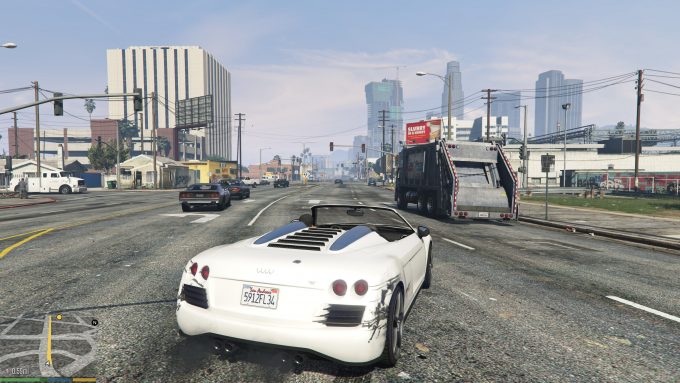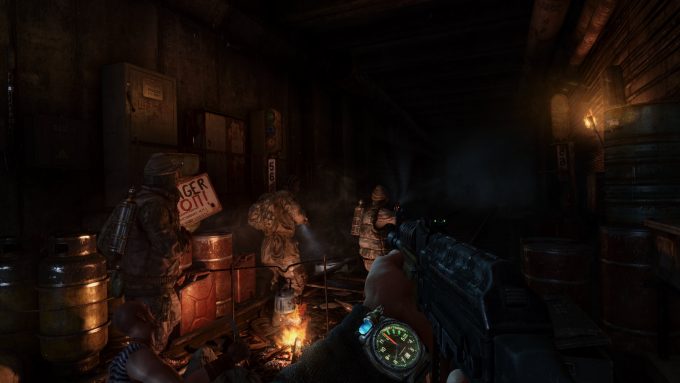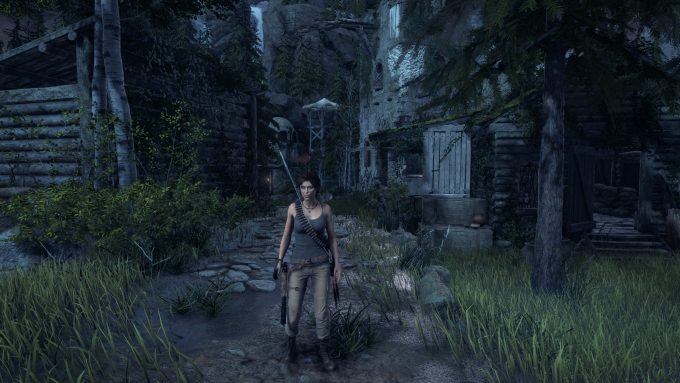- Qualcomm Launches Snapdragon 4 Gen 2 Mobile Platform
- AMD Launches Ryzen PRO 7000 Series Mobile & Desktop Platform
- Intel Launches Sleek Single-Slot Arc Pro A60 Workstation Graphics Card
- NVIDIA Announces Latest Ada Lovelace Additions: GeForce RTX 4060 Ti & RTX 4060
- Maxon Redshift With AMD Radeon GPU Rendering Support Now Available
Polaris, Boosted: A Look At PowerColor’s Radeon RX 570 & RX 580

The hype leading up to the launch of AMD’s Radeon RX Vega is hard to ignore. In fact, it’s the kind of hype that every company dreams of. Given that, a release of an RX 500 series that doesn’t contain Vega could come as a surprise, or even a rude awakening. But, if you’ve been in the market for a new GPU that won’t break the bank, both the RX 570 and RX 580 are well worth checking out.
Page 3 – Tests: Grand Theft Auto V, Metro Last Light & Rise Of The Tomb Raider
Grand Theft Auto V
Does a game like this even need an introduction? Any Grand Theft Auto game on the PC is a ‘console port’, proven by the fact that it always comes to the PC long after the consoles, but Rockstar has at least done PC gamers a favor here by offering them an almost overwhelming number of graphical options to fine-tune, helping to make it suitable for benchmarking, especially at high resolutions.
Testing: The mission Repossession is chosen for testing here, with the benchmark starting as soon as our character makes his way to an unsuspecting car. The benchmark ends after a not-so-leisurely drive to a parking garage, right before a cutscene kicks in.
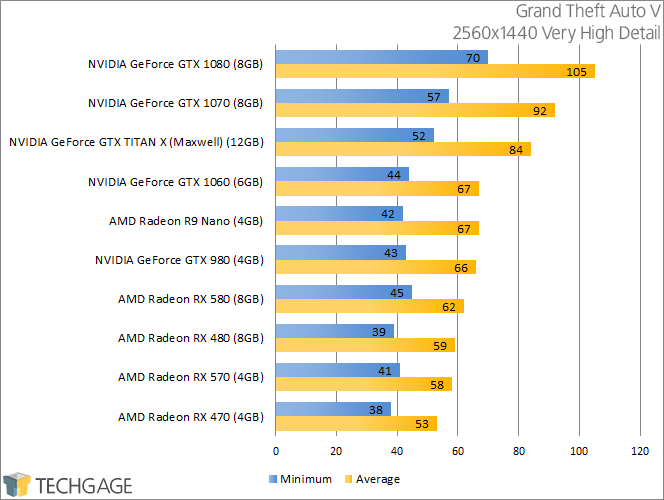
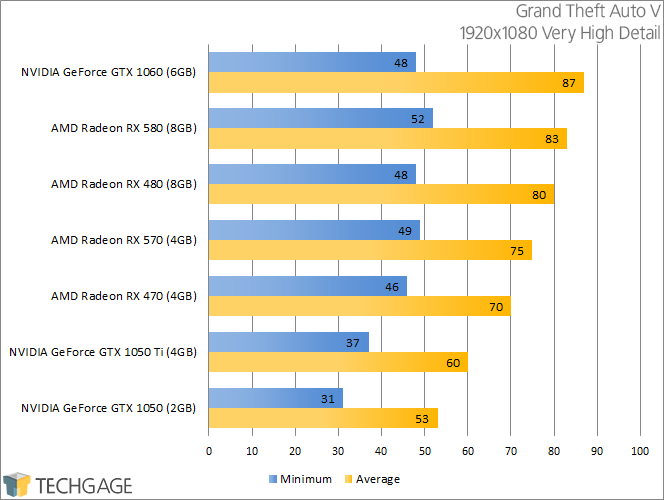
GTA V might be a pretty enough game, but it doesn’t require a high-end rig to run well. Even at 1440p, the RX 570 delivers nearly 60 FPS. At 1440p, the RX 570 performs close to the RX 580, while it falls a bit behind at 1080p.
Metro Last Light Redux
Like a couple of other games in our stable, Metro Last Light might seem like an odd choice give its age. After all, the original version of the game came out in 2013, and its Redux version came out in late 2014. None of that matters, though, as the game is about as hardcore as it can get when it comes to GPU punishment.
Testing: The game’s built-in timedemo is used for testing here, which lasts 2m 40s. While the game can spit out its own results file, it’s horribly inaccurate, so Fraps is still used here.
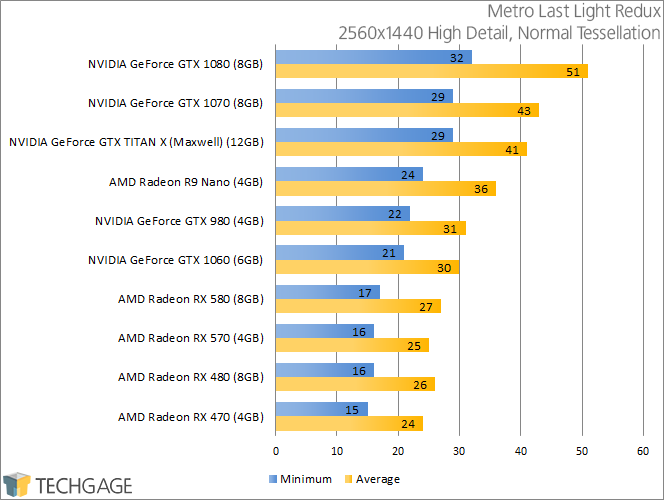
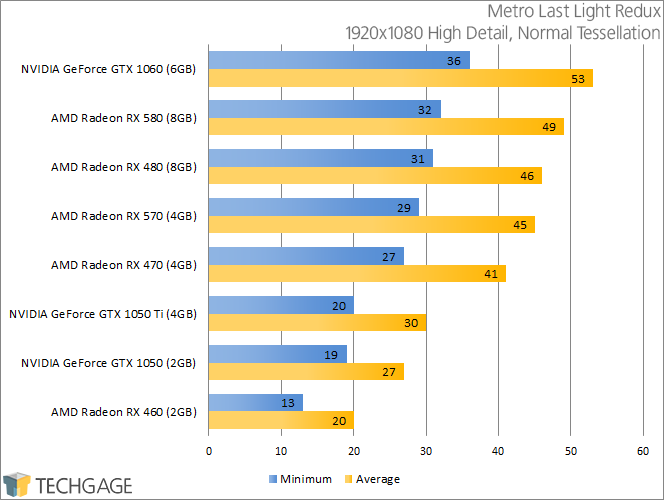
The entire Metro series has become infamous for its demanding graphics, and while much of the world still jokes “Will it run Crysis?”, it’s honestly Metro people should be talking about. Even at 1080p, “High Detail” proves a bit too much for the RX 500 series, although either the RX 480 or RX 580 will offer a decent enough experience (~10 FPS short of 60). Of course, minor adjustments could bring the game to 60 FPS on either one of the new cards.
Rise Of The Tomb Raider
Lara Croft has sure come a long way. The latest Tomb Raider iteration becomes one of the first titles on the market to support DirectX 12, but even without it, the game looks phenomenal at high detail settings (as the below screenshot can attest).
Testing: Geothermal Valley is the location chosen for testing with this title, as it features a lot shadows and a ton of foliage. From the start of our saved game, we merely walk down a fixed path for just over a minute and stop the benchmark once we reach a broken down bridge (the shot below is from the benchmarked area).
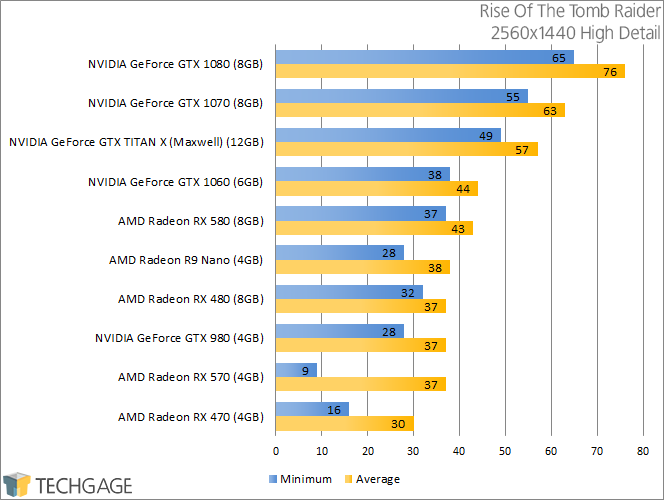
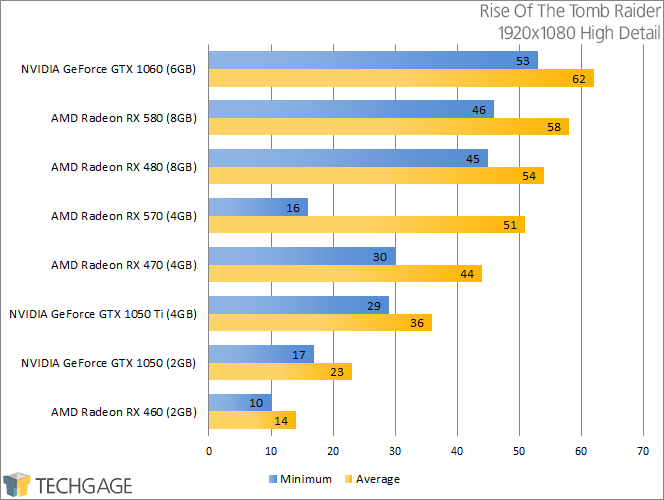
A couple of times so far, we’ve seen the RX 570 fall further behind the RX 580, but the results in Rise of the Tomb Raider take the cake – not so much for the average, but the minimum. The reason for this severe minimum degradation is not clear, but it was very noticeable in the game while testing. However, it only seemed to happen within the first 10 seconds of the run, at which point it’d smooth out. It’s a baffling result that will be retested with the new test suite due out later this month (or at least in advance of Vega).
Support our efforts! With ad revenue at an all-time low for written websites, we're relying more than ever on reader support to help us continue putting so much effort into this type of content. You can support us by becoming a Patron, or by using our Amazon shopping affiliate links listed through our articles. Thanks for your support!




